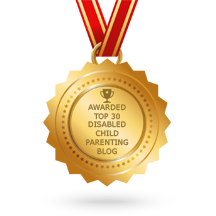Rare Disease Day 2023

Your child is diagnosed with a rare disease. What do you do now? Like many parents of a child with a rare disease, I first hit up Google for answers. In the times we live that is not a bad idea. More and more, groups of people with rare diseases are forming patient support groups, writing blogs, telling their stories on social media platforms, and connecting in any way they can. Raising awareness about your rare disease helps move that needle further down the line.
Every year since 2008, Rare Disease Day is celebrated all around the world. Since February 29th is the "rarest day" on the calendar, it was chosen for that date. Most years, like this year, it is celebrated on February 28th instead. It was created by EURODIS and the Council of National Alliances to spread global awareness and bring rare diseases to the spotlight. I have been celebrating it for the last several years to bring the spotlight to my own kids' rare disease, Neonatal Diabetes.
This year, because I am focusing on editing and publishing my memoir, I am not doing anything big. However, I want to spread a little awareness about what my kids have and what I have learned along the way.
What makes a disease rare?
To be classified as a rare disease, it must affect less than 200,000 people (in the US).
How is Neonatal Diabetes rare?
According to the National Institute of Diabetes and Digestive and Kidney Diseases (NIDDK), "Neonatal Diabetes Mellitus (NDM) is a rare condition accounting for up to 1 in 400,000 infants in the United States." When I was presented with that information after my son's initial diagnosis, I wondered where the other babies were that would have his same condition. I did some research for births that year and determined that, statistically, there should have been at least 9 other babies that year diagnosed with Neonatal Diabetes.
Throughout the years, I have researched and found many families like us. While not born in the same year, we have connected with other NDM families and formed a support group so we can all help each other. It's not a perfect solution, but it's working slowly.
What is DEND? How does it relate to Neonatal Diabetes?
DEND is a subset of Neonatal Diabetes (which is a subset of Monogenic Diabetes). It is an acronym that stands for D-Developmental delay, E-Epilepsy, and ND-Neonatal Diabetes. There are between 40-50 cases reported of this syndrome worldwide. Both of our children have DEND. It is a diagnosis that takes time. Originally, it starts with the Neonatal Diabetes diagnosis under the age of 1, usually under the age of 6 months (there are a few cases of a later diagnosis).
With DEND, there is a slow progression of the other symptoms. The Developmental Delays come into play as they grow. We noticed our son's delays at around 18 months old, but it took a while to get an official diagnosis. Granted, at the time, we didn't know his particular mutation was causing this. Our daughter was on track for development at a year old but started showing some delays around the same time as her brother. Her delays are not quite as severe, but they are still there.
The epilepsy was more difficult to diagnose. My children both have a type of seizure that most people are not aware of. It is called absence seizures and they are extremely difficult to identify. With Andy I noticed his eyeballs shaking one day when he had low blood sugar. At first, I thought it was related to that, but as time went on, I kept seeing the signs and finally brought it up to his doctor at his 6-year annual checkup. Katie was about the same age when we started noticing hers, which was more of a blank stare. After she ended up having a couple of grand mal seizures, we discovered she was having some breakthrough seizures at night. Now that we finally have a good medication, we rarely see seizures with either of them.
How can I help spread awareness?
You can help spread awareness by sharing about your rare disease, or that of a loved one, or posting about other rare disease websites like ours. Our mission for this site is to be a resource for parents to have when their child is diagnosed with a rare disease. We want other families to know that they are not alone.

